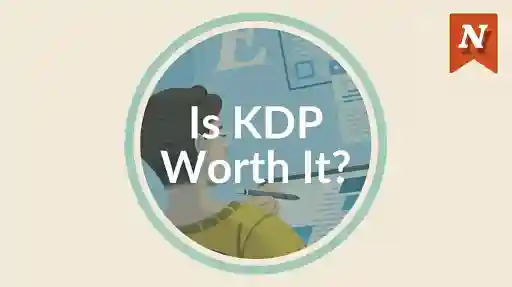What is a writing circle or workshop? It's a space (either online or in person) to share and discuss writing and grow. Read ten ways an online writers' community will help you grow with feedback, accountability, and the benefit of many perspectives.
How an online writers' community helps emerging authors:
Being part of a constructive writing community should help you:
- Stay accountable to writing goals
- Get varied points of view in feedback
- Network and find your village
- Find like-minded beta readers
- Balance work life and writing life
- Learn more about writing craft
- Share prompts and find inspiration to say unstuck
- Get structured practice (while giving and receiving feedback)
- Increase productivity
- Grow with structured writing support
Let's explore why writing circles and workshops are helpful in more detail:
Stay accountable to writing goals
When we polled members of our Coaching and Group Coaching programs on what they found most helpful about being in online writers' communities, 'accountability' was a common thread.
Why does a writing circle or daily writing sprint group make it easier to keep drafting and producing material?
To be 'accountable' means to be 'answerable to' something. We often use it in the context of 'the law'. Yet there is no 'law' saying you have to write (unless you have a contract with a deadline). It's on you, and maintaining that discipline is often hard.
Accountability is easier when you've got some structure. Such as a regular meeting with others who share similar goals. And clear, 'SMART' writing goals. It's even easier with an external source of accountability such as a course schedule, coach, and a group with whom you want to see and celebrate each other's wins along the path to publication.
It's also easier to stay accountable when to break accountability would mean to miss friends and confidants.
Peer connections have been crucial in the history of cultural production, from writers' and artists' studios to co-writers in the recording studio.
Accountability 'takes a village', as the cliché goes, even if literary culture sells us the cliché of the isolated or tortured artist, striving alone. Writing process does not need to be miserable or lonely (though it sure has its share of frustrations at times).
Get varied points of view in feedback
Why is an online writers' community worth joining, as opposed to (for example) taking an MFA?
MFAs vs writing communities
In brief, doing a Masters in Creative Writing or similar has several benefits:
- Acumen for your byline
- A course deliverable (your book, story collection, or other final text) that will be graded and given deep critical discussion (depending on the rigor of the program)
- A structured program
- Baked-in feedback elements such as practical crit and discussion groups
Yet an MFA will typically also have a fairly academic side to it, the pressure of grading, and also, the luck-of-the-draw of who is leading the program. You may even have the misfortune of a program leader with a very dogmatic, single-sided point of view.
[Ed's note: Having started out in a named BMus degree, changing to a BA in English Literature and Music later, I know first-hand that academia is often hit or miss in who you get as a guide to your creative development - to say nothing of navigating big egos, narrowminded values and other general pitfalls of tenure-giving institutions.]
Credentials for query letters are useful, of course, but you can also build your byline submitting short stories, poems and non-fiction to online and print publications.
Why online writing communities may offer better fit
One downside of an MFA versus a regular writing circle is the higher cost.
Maybe you don't want to be graded, either, still finding your feet and voice as a writer as you develop your debut and learn more about craft. Groups create the space for that.
In an MFA, you will also typically meet writers with similar educations and backgrounds.
In online writers' communities, you'll meet writers of all skill levels, gaining insights from beginning and experienced authors alike.
Everyone can bring something valuable to feedback and analysis, whether it's reading like a typical reader in your audience, or more nuanced critical, linguistic or experience-driven insights.
Feedback and discussion with those who are less experienced writers than you is also a useful reminder of the tools and tricks of storytelling.
In a group format where there are Q&As and discussions with multiple individuals, not a single voice saying what flies or doesn't, there is more space for your own creative voice to grow.
Network and find your village
The social aspect of an online writers' community or writing circle is valuable, too.
Often, the friends you make in virtual or in-person writing communities will be the first to line up for copies of your next release, for starters. It's well-proven in marketing that people buy from those whom they know and like.
[Ed's note: I still have many of the poetry collections of members who attended the monthly poetry writing circle I attended for two years as a student. Members purchased each other's signed publications religiously - because they'd already fallen in love with each other's voices. Participation also led to our publication in the curated anthology, 'Difficult to Explain', a memoir of running poetry workshops meets writing manual.]
Beyond having a 'captive audience' (a more caring one than that term suggests), being in a community centered on creation is uplifting and fulfilling. It is a reminder that so many stories are truly 'choral' at heart, carrying many voices in their making. They give truth to the cliché 'it takes a village'.
Stories with one author on the front cover bear the light thumbprint of an editor here, the great word substitution suggestion of a beta reader or writing buddy there. The fuller story lies in the acknowledgments.

How to find a writing community
To find a writing community that will serve your needs:
- Ask what you need from a writing community. Are you willing to share feedback with and learn from writers in other genres, for example? Per Mary Jo's question in the comments, it depends on your preference (it may be harder to find a community dedicated to a very niche subgenre, though!)
- Try the free portion of a community to test it out. Before you join a group that has a membership fee, there may be an open event such as an information evening or free forum where you can get a feel for the community. Do you think it'll be a fit?
- Note what current or former members say about their experience. For a paid writing community, you should be able to find real reviews.
- Use local resources for in-person meet-ups. If you prefer a live, in-person meet-up, libraries, book stores and arts blocks of local universities often have notices about local events for writers.
- Meet writers around the world online. The benefit of an online writers' community is you can meet other authors from around the world (a benefit of Now Novel members often mention).
Find like-minded beta readers
Many writing circle members when asked about the benefits of writing groups on Quora spoke of the value of having early readers.
Kara Krelove, for example, says a main benefit is:
An outside eye on your work, BEFORE you try to shop it to editors/agents/publishers.
Contributor, via Quora
First readers or 'beta readers' are valuable. The early input in a constructive, moderated and professional space can save you time on a muddled project that would have benefited from early course-adjustment.
Now Novel has its own closed beta reading group for members, where writers who have forged connections in our online writers' community seek readers in their genres.
Writing connections you build now with other emerging or experienced authors thus may continue to pay off for many years to come.

Balance work life and writing life
A common issue many alumni in Now Novel's Group Coaching writing program describe on joining is finding or making time.
Balancing the demands and pressures of work (many people hold multiple jobs or main jobs and side hustles), along with family and the desire to craft stories is tricky.
How do online writers' communities and crit circles or writing sprint partners help you find that balance?
- They help you maintain motivation. It's a little like yoga, spinning, or any other group-based activity. FOMO (fear of missing out) helps you keep showing up (and the laughter, friendship and wins you celebrate with others along the way)
- They help you keep a structured writing schedule. When you say 'I can't find time' what you often really mean is 'I can't make time'. A commitment such as a regular meet-up is a great way to make that time for your story completely non-negotiable
How group writing activities help
Group activities such as writing sprints (where you write with others in silence for a set duration) or answer a prompt and share responses in your group help you make time amid the chaos of life for creativity.
[Ed's note: Now Novel Group Coaching alumna Lauren managed to finish a complete draft in just two months by attending morning writing sprints - an impressive accomplishment!].
Caring and supportive writing circles create balance the way a structured, regular lunch break does, or taking leave due. Participation is another form of 'me time', the protecting of which is vital in order to persist and keep pursuing your creative goals with the necessary drive.
Learn more about writing craft
Writing craft is a vast subject that can seem daunting. Wrangling with viewpoint, narration, dialogue, description, language use and all the other elements that make a good story.
An online writers' community is an excellent place to learn more about writing craft because there will usually be:
- Diverse perspectives. An English teacher may spot all the grammar slips, a historian the factual or historical inaccuracies, for example.
- Accessibility. Being able to access your community from anywhere is even more convenient than in-person meet-ups.
- Resource-sharing. Writers in our own groups aren't shy to share their amazing writing craft finds and resources.
- Real-time feedback. Feedback within days beats a monthly meet-up where there is a long time between discussion. It accelerates the learning cycle.
- Ongoing support. Community is not a 'one-and-done' sort of interaction. The relationships you build over time will continue to serve you with insight and mutual care.
[Ed's note: Giving weekly feedback on Now Novel for several years now has taught me as much as, if not more than, a three-year degree and one-year postgrad in English literature. I'm certainly more adventurous in my genre interests than before. A diverse group ensures you never stop learning.]
Giving other writers feedback in a writing circle will grow your own craft. Even if you don't feel 'qualified' as a beginning writer, telling another author what you liked or enjoyed in simple terms is motivating in itself. Confidence and critical analysis skills grow with practice.
We've written before about how giving writing feedback builds your own ability.

Share prompts and find inspiration to stay unstuck
Want to support or start your own writing community? Sharing prompts for inspiration is a simple and fun way to stay productive (and prevent getting stuck).
In the member-founded 'Craft Challenge' group on Now Novel, for example, members have found story ideas that have led to multi-book series inspiration through answering each others' prompts.
Prompts could be a themed prompt each month, or weekly or even daily prompts. You'd be surprised at the variety of responses even a simple prompt may elicit [Ed's note: As I was when I adjudicated Elegant Literature's story contest for their 17th Issue on the prompt 'Behind the Veil'.]
Whether you have an online writing circle or an in-person meetup, sharing prompts is a fun ice breaker and way to jog ideas you may never have otherwise had. It's also a great way to keep words coming if your main project is giving you grief and you need a brief holiday.
Get structured practice (while giving and getting feedback)
Answering prompts for a regular meet-up or online writers' community is a kind of structured practice that keeps words coming.
Building writing habits and staying productive is all about these regular habits. Giving feedback in addition to getting it regularly is another way writing groups train your brain to say 'it's story time now'.
Practice is what makes 'the muse' kick in your door and make you write, not flashes of inspiration (which are lucky if you have them but often ephemeral and hard to summon on command).
Regular discussions, such as Q&As with visiting speakers or writing coaches, or a simple regular group chat or forum, is part of a praxis, even if it may seem a 'waste' at times because you 'should' be writing (talking about writing helps you work through bigger picture challenges, bounce ideas off others). The non sequiturs and side-discussions could inspire new stories, too.
Increase productivity
Regular writing group meetings, whether in an online writers' community or at in-person events, may help you to write more, more often.
That's definitely what alumni of our Group Coaching course say about taking part in daily drop-in writing sprints.
We often say members 'write more, together' at Now Novel because there is motivation and perseverance that comes with ongoing structure and guidance. It's why people invest in personal trainers, dieticians, psychologists, and other mentor figures. To achieve goals that may have otherwise seemed impossible, one small win or change at a time.
This is the paradox of writing circles, crit groups, online writing communities - whatever you want to call them: We often think of 'socializing' as the enemy of productivity (especially in the age of social media), as distraction from the 'serious' work of drafting and revising, as 'switching off' time. Yet storytelling has its roots in community, oral culture, active participation in sharing and creating knowledge.
Writing is profoundly social at root, and groups crystallize what is beneficial and productive about socializing. Swapping stories, ideas, perspectives. Recalibrating so that you're even readier to tell the tale.
Grow with structured writing support
When there's a good fit, a good critique circle gives you structured support that helps you grow.
Part of this is having rules such as codes of conduct. A discussion where each member gets a turn to have their say, without extended interruption, and people are respectful and constructive regardless of skill level or individuals' genre preferences.
The above is why you may prefer a moderated or led group, such as a writing workshop which has an author or editor as a host.
Having a leader at the helm of your writing group or community who is aware of group dynamics and thoughtful about inclusion helps to balance out complex dynamics and personality differences.
If your group does not have a leader, however, one approach is to vote for a 'dragon' whose role it is to steer discussion, keep time for discussion segments and so forth, and a 'heart' who checks in to ensure nobody is left out of discussion and every voice is heard.
What has your writing group experience been like? Tell us in the comments.
Join a structured, coached writing group with writing sprints, coach Q&As, professional feedback and a plan to finish your book.










I enjoyed the article, however I was hoping to get more information or suggestions on HOW to find a writing circle. Should it be writers who write the same genre or different genres? If it is online, where are some of the resources to be found? If I have to start my own, how do I begin?
Mary Jo - Over 4 years ago
Hi Mary Jo, thank you for this helpful feedback, I will add more information on this area. Speaking from experience, I found my longest-attended writing circle by attending a university-run summer school writing workshop, after which the workshop leader invited attendees to a monthly workshop at her home (which I attended on and off for around two years). Writing circles affiliated to a university, course or online writing community (like our own here at Now Novel) are a good option as you will find experienced authors and editors moderating them (because circle leaders write and teach craft for a living, these will typically involve membership or attendance fees, but one of the benefits of this is it helps to ensure that everyone who attends really wants to be there and make progress, plus you get the benefit of professional feedback and advice). You could otherwise join a free one (for example, our writing groups on Now Novel include a critique submission system and a chat forum where a core of long-time members tirelessly leave considered, thoughtful and constructive feedback). If you're looking for one in your area, your local university, community college or library may list active circles. If you would like to start your own, I would suggest thinking of a good name and whether you want it to be genre-bound or open to all genres, then reaching out to local writing-adjacent institutions such as libraries or smaller book merchants to find out whether you can list your writing group. If starting your own, I would recommend drawing up a constitution for the group too that members agree to abide by, to ensure that any antisocial or counter-productive behaviour by any new attendee can be addressed and resolved. I hope this is helpful, let me know if you have any further questions.
Jordan - Over 4 years ago
MeetUp is also a good place to find writers groups. Mine meets every Sunday afternoon at 2:30 p.m. US eastern time and welcomes first-time visitors. We used to meet in person, but since the pandemic started we've met on Zoom, and now have members all over the planet -- and in all genres. Here's our MeetUp link: https://www.meetup.com/Belchertown-Writers-and-Futurists/
Maria Korolov - Over 4 years ago
That's awesome, Maria, thank you for sharing this.
Jordan - Over 4 years ago
Quite interesting and Inspiring.
Chinwe Anochirionye - Over 3 years ago
Thank you for your feedback, Chinwe. Thanks for reading.
Jordan - Over 3 years ago
This was perfect. I started with NowNovel with an idea and no writing experience, feeling scared and ridiculous. The critiques set me on an unexpected journey of knowing I had something, but needed a lot more in terms of skill growth. The Craft Challenge group helped me think outside the box and experiment in a positive space. Lastly, the Live Crit online meetup gave me a voice. I’m on year two or so, but for the first time there’s a path forward to reach the end of my book within the length I wanted, I know what the next steps will be and feel confident I can achieve them (with a little help from my NowNovel friends), and last week someone asked me what my book was about, and I actually answered like an intelligent human being 😁
Margriet - Almost 3 years ago
Hey Margriet, thank you very much for sharing your experience. You definitely can claim most of the credit for persevering through the ups and downs of the writing process! :) I'm really glad Now Novel's been a constructive and positive space for telling stories over the last year or two. Thanks for your valuable contributions to the community 😊 and three cheers for 'answering like a human being' 😁 Creative process is tricky to talk about as it's so often in a state of flux or at a decision-making crossroads.
Jordan - Almost 3 years ago